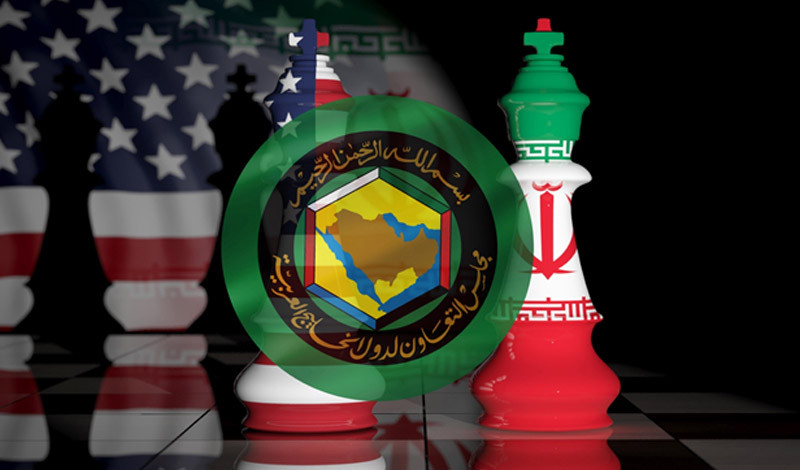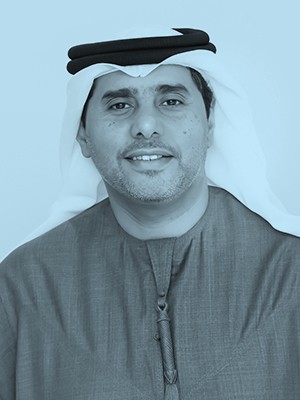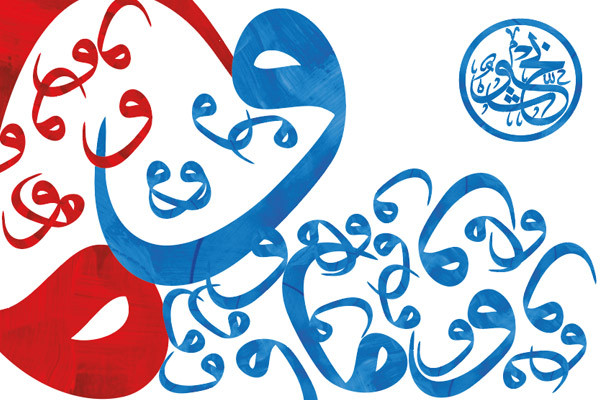Whats the Big Deal with Iran? A View from the Gulf
A recent session of a global security conference in Washington, DC asked, Can an Iran-US deal work? Many in the Gulf Cooperation Council (GCC) are asking the same question but apparently questioning the extent and impact of such a deal. In the conference, the discourse followed the worn path aimed at halting Irans nuclear program. In the GCC, however, the discourse encompasses an important set of geopolitical concerns, most of which DC thinkers and policymakers appear to downplay or ignore.

- by Mohammed Abdul Rahman Baharoon ,
- Sunday, 17th November, 2013
While US officials say that the United States wants Iran to return to being a responsible member of the international community, they seem to pose a single criterion for judging that behavior: Irans agreement to rein in its nuclear program. In principle, the members of the GCC agree with the general goal to bring Iran back as an active member of the international community.
For all GCC members, Iran is and will continue to be part of the region, along with the GCC. Any reduction in tension in the region will contribute to the regions stability and prosperity. Every GCC member has bilateral arrangements with Iran to maintain orderly relations; some such as the United Arab Emirates (UAE) and Oman have strong economic connections and historical ties.
Nonetheless, the nature of Washington pronouncements about its future relations with Iran and the possibility of a deal have sparked distrust in the GCC countries. Saudis rejection of the UNSC seat is as much about the United Nations inability to act constructively on Palestine or Syria as it is about disregard of Saudi security concerns in the region after the US-Iran courtship. Saudi and the UAE as well other GCC countries are widely disenchanted about the US over Egypt and Iran. It was no coincidence that the BBC began reporting a possible Saudi arms deal with Pakistan when negotiations in Geneva began in the absence of any GCC members.
The Gulf states tend to perceive the prospective deal under negotiation in Geneva as having more important outcomes than a simple swap of lifting sanctions in exchange for halting enrichment. Rather than this so-called deals intent to help the region, GCC members see it in the context of a US efforts to downsize its regional presence due US budget cuts and the pursuit of energy independence. As legitimate as US strategy and budget constraints may be, the fear among GCC analysts is that such a strategic outlook dictate the tactical means in dealing with Iran. It is even more unsettling if such motivation does not recognize the long-term impact on Arabian Gulf security.
Haleh Esfandiari, a speaker at the conference in Washington dealing with the potential US-Iran deal, identified Irans desired outcome from the prospective deal as ending the sanctions and recognition of Irans role in the region. Esfandiari did not, however, explain what that role would be; nor did she define such a role in terms of Irans future in the region.
What Iran would achieve beyond sanctions relief shapes GCC thinking and responses to such a deal. Ambiguity regarding the post-deal Iranian role in the Arabian Gulf harbors potential misunderstanding. Irans so-called role could contribute to US efforts to achieve stability in Iraq, Syria, Lebanon, and even Afghanistan and Pakistan. But for the GCC, this role could mean undisputed control of international shipping pathways in the Arabian Gulf, as well ability to rattle its sword to protect the interests of Shia communities in GCC countries. For many, this translates into hegemony. Iran already occupies three UAE islands, threatens Bahrains sovereignty, supplies forces and weapons in Syria, supports proxy organizations in Lebanon and Yemen, and professes the right to protect the Shia of the world. US validation of Irans role could encourage Iranian aspirations to push even further.
Because US discourse touches none of these interpretations of Irans role as part of the deal, GCC members find legitimate reason to worry. Belated US efforts to consult with GCC members over these negotiations seemed to have raised rather than allayed the level of their anxiety.
A deal with Iran is not solely a nuclear deal. It will have geopolitical implications which require acceptance and participation from all regional and international partners. The GCC views regarding the meaning of Irans role as a responsible member of the international community need to be taken into consideration if such efforts are to receive regional support. Irans role as a responsible member of the international community must be defined in practical terms that will reflect a commitment to international law beyond effective international inspections to guarantee Irans compliance with its claim that its nuclear program is strictly for civilian energy production.
Key elements of a big deal that would address the concerns of the GCC states are:
- Irans acceptance of international arbitration or adjudication on the issue of the three UAE islands that Iran occupies.
- Its renunciation of its role as protector of all Shia that would entitle Iran to recognition as a sovereign national state but not as a religious transnational leader.
- Irans adherence to international conventions of noninterference in other countries internal affairs; and
- Signing legally binding nonaggression agreements with its neighbors.
The deal for the GCC countries is a big deal and for good reasons. They need to be addressed in any talks with Iran.
Originally published on the Atlantic Council, MENA Source blog.

Mohammed Abdul Rahman Baharoon
Director General
Read More
Areas of Expertise
- Geo-strategy
- Reputation and soft power
- Public Policy and International Relations
Education
- Master’s degree in English Literature from Texas Tech University in 1995
- English Major from Kuwait University in 1987
Bio
He perused a career in media as a reporter for “Al Arabi” Magazine, Al Ittihad newspaper, and then Editor for Gulf Defense Magazine before starting as director of research at both and focusing on the interplay between Geostrategy and policymaking in governance, stability, capacity building, and future-proofing.
Mohammed has also worked as Deputy Director of Watani (UAE’s first initiative on National Identity) and is also a founding member of the board of “Bussola Institute” a think tank in Brussels that focuses on the changing and emerging aspects of the partnership between the EU and the GCC member states.
As part of his interest in the emerging geostrategic space of the Arabian Peninsula, Mohammed looks at Iran as part of the development of the area as a major trade artery. This development implies developing a sustainable relationship with its regional neighborhood on the Arabian Gulf, The Arabian Sea, the Red Sea, or the Mediterranean. Iran is a major component of that space and becoming more adaptable to the modernization process will allow it to become part of the future development of the region.

